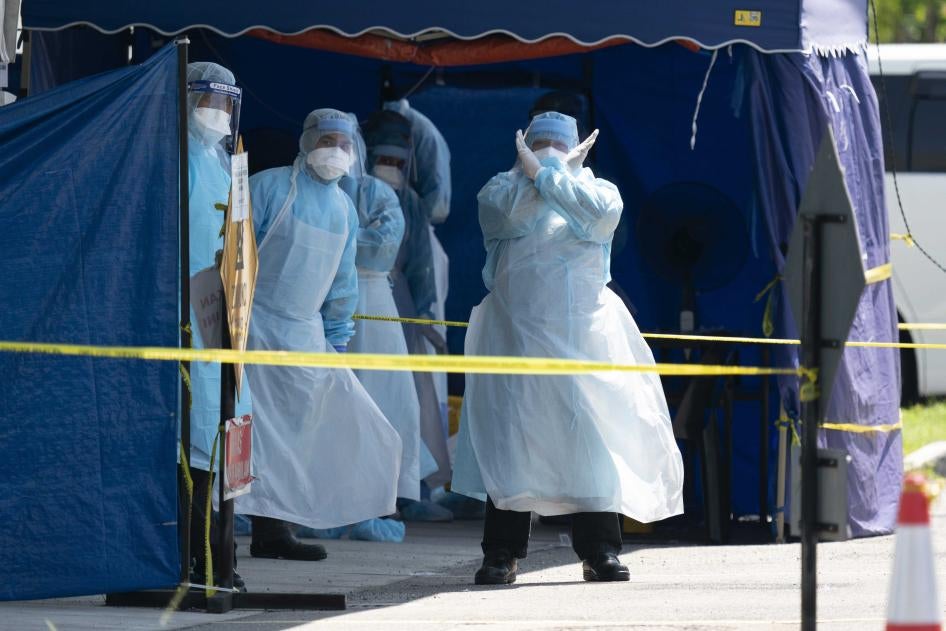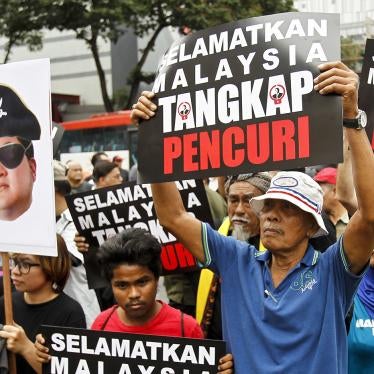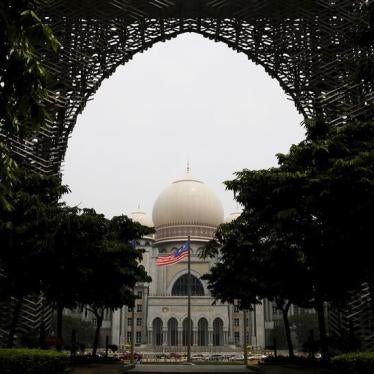(New York) – The Malaysian federal and state governments should ensure that COVID-19 related health care services are available without discrimination to all migrants, stateless people, and refugees, Human Rights Watch said today. Urgent measures are especially needed in the state of Sabah, which has a large migrant and stateless population.
The government should carry out multilingual public messaging campaigns that everyone has the right to access health care without risk of arrest or deportation, Human Rights Watch said.
“Malaysia can’t effectively combat COVID-19 if migrants, stateless people, and refugees are unable to get health care because they can’t afford it, face discrimination, or fear arrest and deportation,” said Brad Adams, Asia director at Human Rights Watch. “With many living in crowded settlements with no running water and no ability to isolate those who get sick, they are especially vulnerable to the COVID-19 infection.”
For many non-citizens in Malaysia, who must pay more for health care than citizens do, the costs of health care can present an insurmountable barrier. Language and cultural barriers may also impede access to services. While the Ministry of Health announced on March 23,2020 that COVID-19 tests will be free for foreigners as well as for Malaysians, the announcement does not make clear whether free tests are available for those who are undocumented, or whether those who are found to be ill will have to pay the “foreigner fee” for treatment. At the federal level, the Malaysian government has taken strong measures to combat the spread of COVID-19, announcing orders to limit travel and closing non-essential businesses.
The government has also been working with the United Nations refugee agency, UNHCR, to trace Rohingya refugees who attended a religious event in Kuala Lumpur that has been the source of a large cluster of infections. The federal territories minister, Annuar Musa, encouraged undocumented migrants who attended the event to come forward and be tested, but did not expressly state that they would not face legal repercussions.
The police commissioner in the eastern state of Sabah also called for all who attended the event to come forward for testing. He was quoted in the media as saying: “Don't be afraid because the police will not arrest them ... the most important thing is the health screening and if they are found to be healthy then they will be allowed to go home.”
Human Rights Watch said the government should issue clear assurances to all groups that they will not face arrest or other legal repercussions if they seek medical care.
Sabah, in particular, has a large population of irregular migrants, stateless people, and holders of various refugee passes issued by the Sabah state government, as well as oil palm plantations and timber concessions that rely heavily on migrant workers. All face serious barriers to accessing health care.
The two towns in Sabah with the highest reported coronavirus cases are Lahad Datu and Tawau, both with large populations of migrants and stateless people. For many migrant populations, the potential risk of a serious outbreak is compounded by the inadequate sanitation, lack of running water, and small, crowded houses that typify these communities, Human Rights Watch said. The state capital, Kota Kinabalu, which has also reported COVID-19 cases, also has a large migrant and stateless population, thousands of whom live on island and coastal communities and work in formal and informal sectors in the city.
The rapid spread of COVID-19 reported within Sabah, and the large number of marginalized people in the state, puts an onus on the federal and state governments to proactively adopt measures to ensure that everyone has access to testing and health care.
The Malaysian government should remove the barriers that prevent non-citizens from getting health care and ensure that everyone, regardless of their nationality or legal status in Malaysia, can obtain testing and treatment for COVID-19 on a nondiscriminatory basis, Human Rights Watch said. As a matter of public health, the government should consider abolishing the “foreigner fee” for access to COVID-19 testing and treatment, completely suspend arrests and detention for immigration violations of those already in the country, and publicly announce that all those who need medical care can seek it without fear of arrest or deportation.
“The Malaysian government needs to mitigate the impact of the COVID-19 epidemic by making sure everyone, regardless of their legal status, can access health care without risk of arrest or other repercussions and is aware that they can do so, and that hospitals treat all those who come without discrimination,” Adams said. “COVID-19 does not discriminate, and neither should the Malaysian government.”








